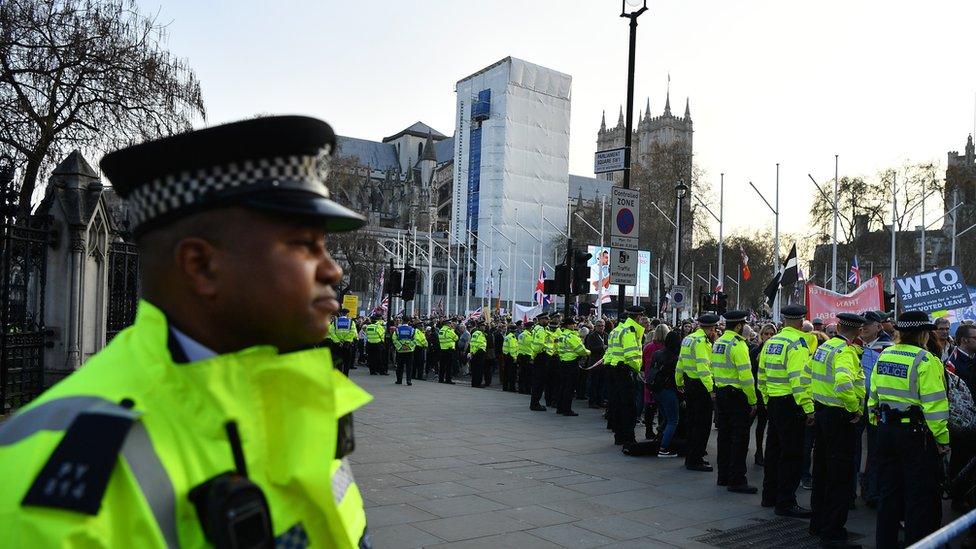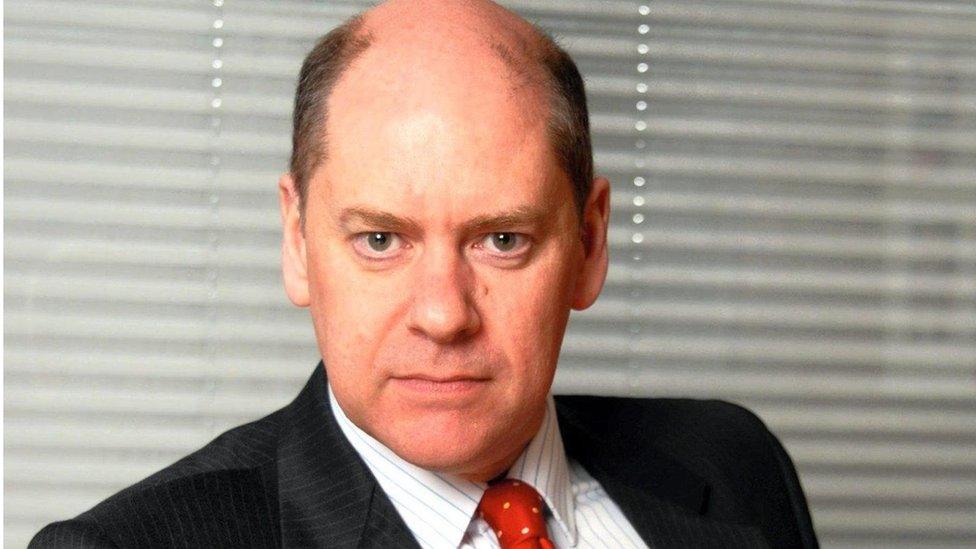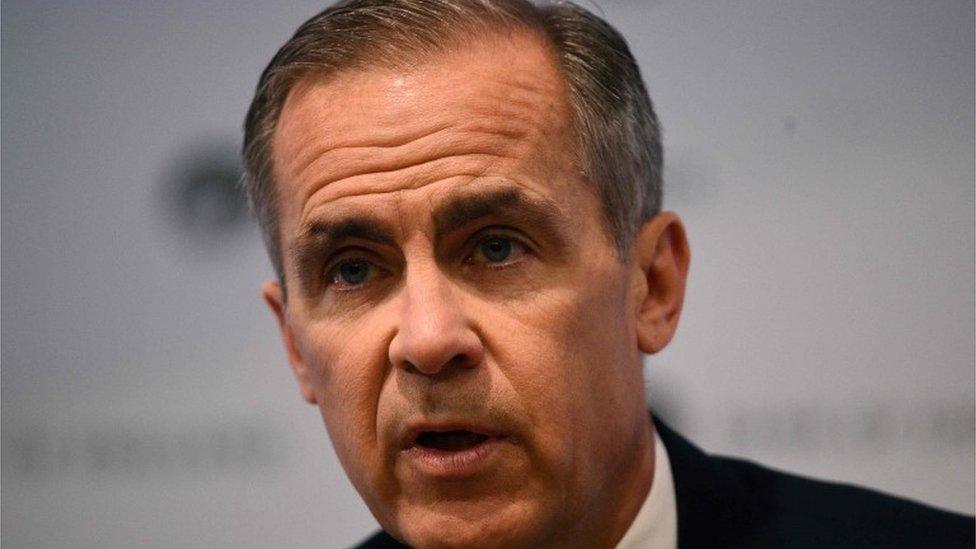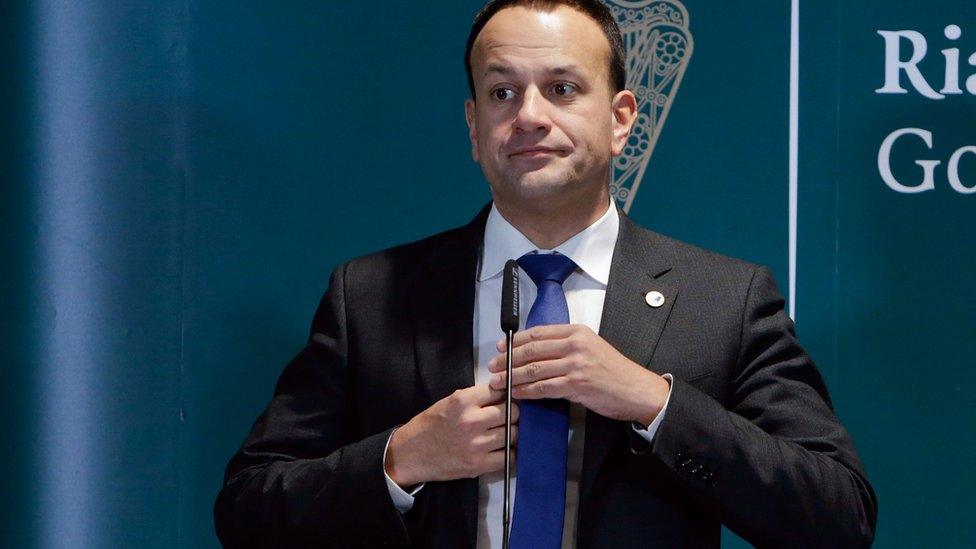Brexit: Police warn MPs and campaigners not to inflame tensions
- Published

Police lined up outside the House of Commons in Parliament Square
Politicians and campaigners should take care not to "inflame" tensions in the UK caused by Brexit, a senior police chief has warned.
Chairman of the National Police Chief Council (NPCC), Martin Hewitt, said people should think carefully to avoid inciting others to violence.
Police have 10,000 officers ready to deploy at 24 hours' notice as part of possible no-deal Brexit preparations.
However, police chiefs said the measures were only a precaution.
Mr Hewitt said the NPCC was preparing for the "worst case scenario" and was not predicting major problems.
Chief Constable Charlie Hall, the NPCC lead for operations, also said there was no intelligence to suggest there would be a rise in crime or disorder because of Brexit, although forces were "prepared to respond to any issues that may arise".
The warnings follow increased concern about intimidation of MPs.
Mr Hewitt said the UK was in "an incredibly febrile atmosphere" as a result of the debate over leaving the EU and there was a lot of "angry talk" on social media.
He said: "I think there is a responsibility on those individuals that have a platform and have a voice to communicate in a way that is temperate and is not in any way going to inflame people's views."
Officers in charge of policing Parliament said they had seen an increase in abuse aimed at politicians and several MPs have requested increased security.
Only a small number of crimes have been linked directly to Brexit, police said, with about half being malicious communications, while the rest included verbal abuse, harassment and offences committed during protests.
But hate crimes remain higher than before the 2016 EU referendum.
In 2017-18, there were 94,098 hate crimes recorded, a 17% rise that is thought to have also been fuelled by the terror attacks in London and Manchester.
After warnings of disruptions at the border and to food supply chains if the UK leaves without a deal, police said they had plans to deal with incidents such as problems on the roads, major protests or even rioting and looting.
Anna Soubry: "This is astonishing. This is what has happened to our country"
They said they would be able to deploy 1,000 officers at an hour's notice, or more than 10,000 drawn from across England, Wales and Scotland within 24 hours - more than were used in the 2011 London riots.
Specialised teams such as dog handlers, armed police and search-trained officers would be available, while 1,000 officers have received extra training so they could be deployed to Northern Ireland.
But Mr Hall said he has warned those in charge of supply chains for food, fuel and other essentials to make their own preparations as officers will only be used "if absolutely necessary".
Prime Minister Theresa May condemned "harassment and intimidation" by protesters after Remain-supporting MP Anna Soubry was verbally abused at Westminster, while one pro-Brexit MP took to wearing a body camera on his way in and out of Parliament.
MPs have also been warned to take care over their own language, after a backbencher was quoted saying the prime minister should "bring her own noose" to a meeting.
Conservative MP Sarah Wollaston called those responsible "spineless cowards" and questioned whether they had learned anything from the murder of Labour MP Jo Cox, who was killed by a far-right extremist in 2016.
Kinder politics? 'We’re back to square one’ says Jo Cox's sister
- Published22 March 2019

- Published3 April 2019

- Published3 April 2019
